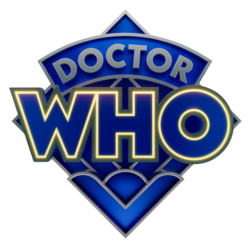Doctor Who is a British science fiction television series that has been running since 1963. The show follows the adventures of the Doctor, a time-traveling alien from the planet Gallifrey who travels through time and space in a ship called the TARDIS (Time and Relative Dimension in Space), along with a series of human companions. The Doctor is a member of an alien race called the Time Lords, who have the ability to regenerate their bodies and change their appearance when they are close to death, allowing the show to recast its lead actor over time.
The show has been known for its innovative storytelling, memorable characters, and iconic moments. The Doctor is a hero who stands for justice, intelligence, and bravery, often fighting against tyrants and aliens who threaten the universe. Along with his companions, the Doctor has faced a wide range of enemies, including the Daleks, Cybermen, and Weeping Angels.
Throughout its run, Doctor Who has gone through several changes, including changes in showrunners, writers, and lead actors. The show has also spawned a variety of spin-offs, including Torchwood, The Sarah Jane Adventures, and Class. Doctor Who has also had a strong influence on popular culture, with references to the show appearing in films, television shows, and other media.
Since the show’s inception in 1963, there have been thirteen actors who have played the lead role of the Doctor on Doctor Who. They are:
William Hartnell (1963-1966)
Patrick Troughton (1966-1969)
Jon Pertwee (1970-1974)
Tom Baker (1974-1981)
Peter Davison (1982-1984)
Colin Baker (1984-1986)
Sylvester McCoy (1987-1989, 1996)
Paul McGann (1996)
Christopher Eccleston (2005)
David Tennant (2005-2010)
Matt Smith (2010-2013)
Peter Capaldi (2013-2017)
Jodie Whittaker (2017-2022)
The character of the Doctor is known for his or her quirky and idiosyncratic personality, as well as his or her unwavering commitment to fighting evil and protecting the universe.
Doctor Who has been on the air for over 50 years, and as such, it has gone through several phases, changes, and critical moments. Here are some critical points on Doctor Who over the years:
Classic Era: The Classic Era of Doctor Who ran from 1963 to 1989 and was marked by iconic actors like William Hartnell, Patrick Troughton, Tom Baker, and Peter Davison, among others. During this time, Doctor Who became a cultural phenomenon and one of the most beloved science fiction series in the world.
Hiatus: Doctor Who went off the air in 1989, and after a failed attempt to revive the series in 1996, it remained off the air for over a decade. During this time, fans continued to show their support for the series, and the show developed a cult following.
Revival: In 2005, Doctor Who returned to television screens with Christopher Eccleston as the Ninth Doctor. The show was a huge success and reinvigorated the franchise, attracting a new generation of fans while also keeping the classic fans engaged.
David Tennant: David Tennant’s portrayal of the Tenth Doctor is widely regarded as one of the most iconic performances in the show’s history. Tennant’s tenure on the show, which lasted from 2005 to 2010, was marked by his quirky personality, romantic storylines, and emotional performances.
50th Anniversary: In 2013, Doctor Who celebrated its 50th anniversary with a special episode that brought together multiple Doctors, including David Tennant and Matt Smith. The episode was a huge success and marked a major milestone in the show’s history.
Jodie Whittaker: In 2017, Jodie Whittaker became the first woman to play the role of the Doctor, marking a major shift for the franchise. Whittaker’s tenure on the show, which lasted from 2017 to 2022, was marked by a focus on diversity and inclusivity, as well as a renewed commitment to exploring social issues in science fiction.
What are the Scariest Doctor Who Episodes?
Doctor Who has had many episodes that have scared audiences over the years. Here are some of the scariest episodes from the show:
“Blink” (Season 3, Episode 10): This episode features the Weeping Angels, a terrifying race of alien creatures that can move and attack only when you’re not looking at them. The episode is filled with suspenseful moments and chilling imagery.
“Midnight” (Season 4, Episode 10): In this episode, the Doctor and his companions are trapped on a shuttle bus on a planet where something is possessing and attacking the passengers one by one. The claustrophobic setting and tension make for a very creepy and intense episode.
“The Waters of Mars” (Special Episode): In this episode, the Doctor lands on Mars and encounters a group of scientists who are being infected and transformed by a mysterious water source. The episode is filled with body horror and suspense, and the Doctor’s desperation to save everyone makes for a particularly tense viewing experience.
“Listen” (Season 8, Episode 4): This episode explores the idea of fear and the unknown, as the Doctor investigates a mysterious creature that may or may not exist. The episode is unsettling and psychologically thrilling, with a particularly haunting final sequence.
“The Impossible Planet” and “The Satan Pit” (Season 2, Episodes 8-9): In this two-part episode, the Doctor and his companion arrive on a planet orbiting a black hole and discover an ancient and powerful evil lurking beneath the surface. The episodes are filled with dread and horror, and the final confrontation with the entity known as the Beast is particularly chilling.
Which were the Worst Doctor Who Episodes?
Here are some Doctor Who episodes that have been criticized by fans and critics:
“Fear Her” (Season 2, Episode 11): This episode follows the Doctor and Rose as they investigate a strange alien presence in a suburban neighborhood during the 2012 Olympic Games in London. The episode was criticized for its weak plot and underdeveloped characters.
“In the Forest of the Night” (Season 8, Episode 10): In this episode, the Doctor and Clara investigate why trees have suddenly taken over the Earth overnight. The episode was criticized for its lack of tension and stakes, and for its heavy-handed environmental message.
“Love & Monsters” (Season 2, Episode 10): This episode follows a man named Elton who becomes obsessed with the Doctor and his adventures. The episode was criticized for its overly comedic tone and for its lack of involvement from the Doctor and his companion.
“The Curse of the Black Spot” (Season 6, Episode 3): In this episode, the Doctor and his companions find themselves aboard a pirate ship that is being terrorized by a mysterious creature. The episode was criticized for its weak plot and unremarkable villain.
“Sleep No More” (Season 9, Episode 9): In this episode, the Doctor and Clara investigate a space station where a group of scientists have gone missing. The episode was criticized for its confusing narrative structure and for its lack of involvement from the Doctor.
Of course, opinions on these episodes and others may vary, as Doctor Who has a diverse fan base with differing tastes and preferences.
Overall, Doctor Who is a beloved and long-running science fiction series that has captured the imaginations of generations of fans. With its engaging characters, imaginative storytelling, and innovative use of time travel, Doctor Who continues to be a beloved staple of science fiction television.

